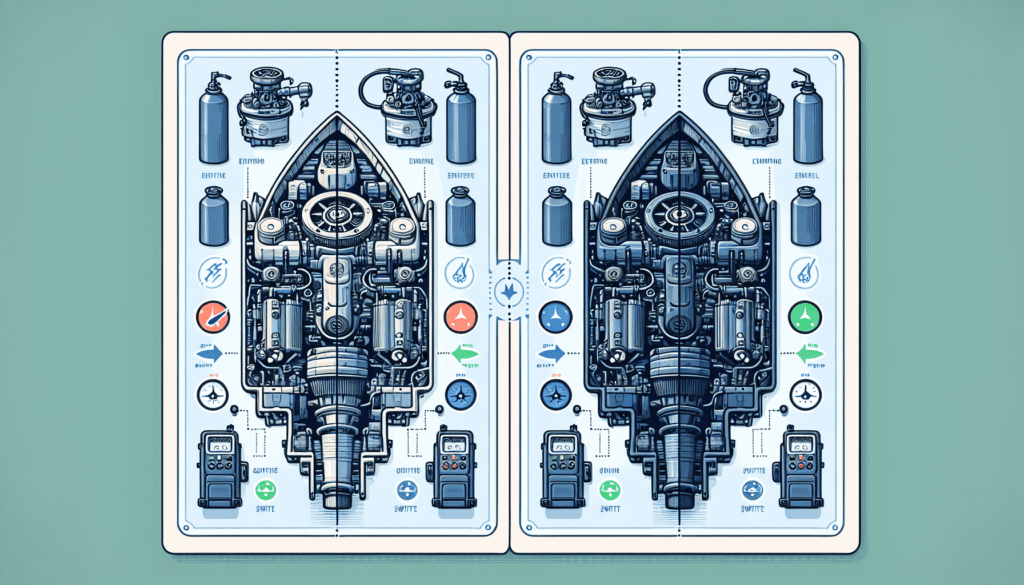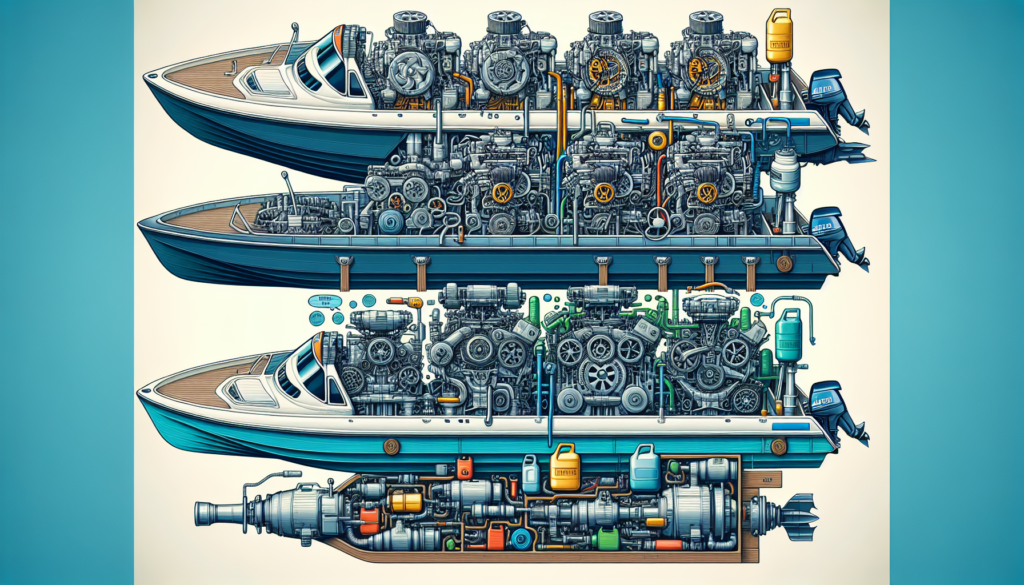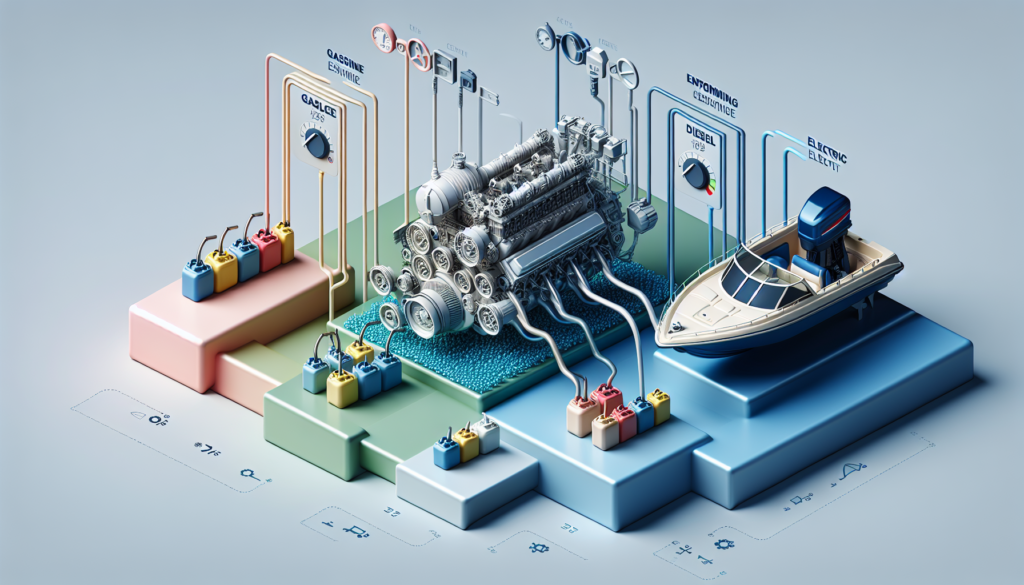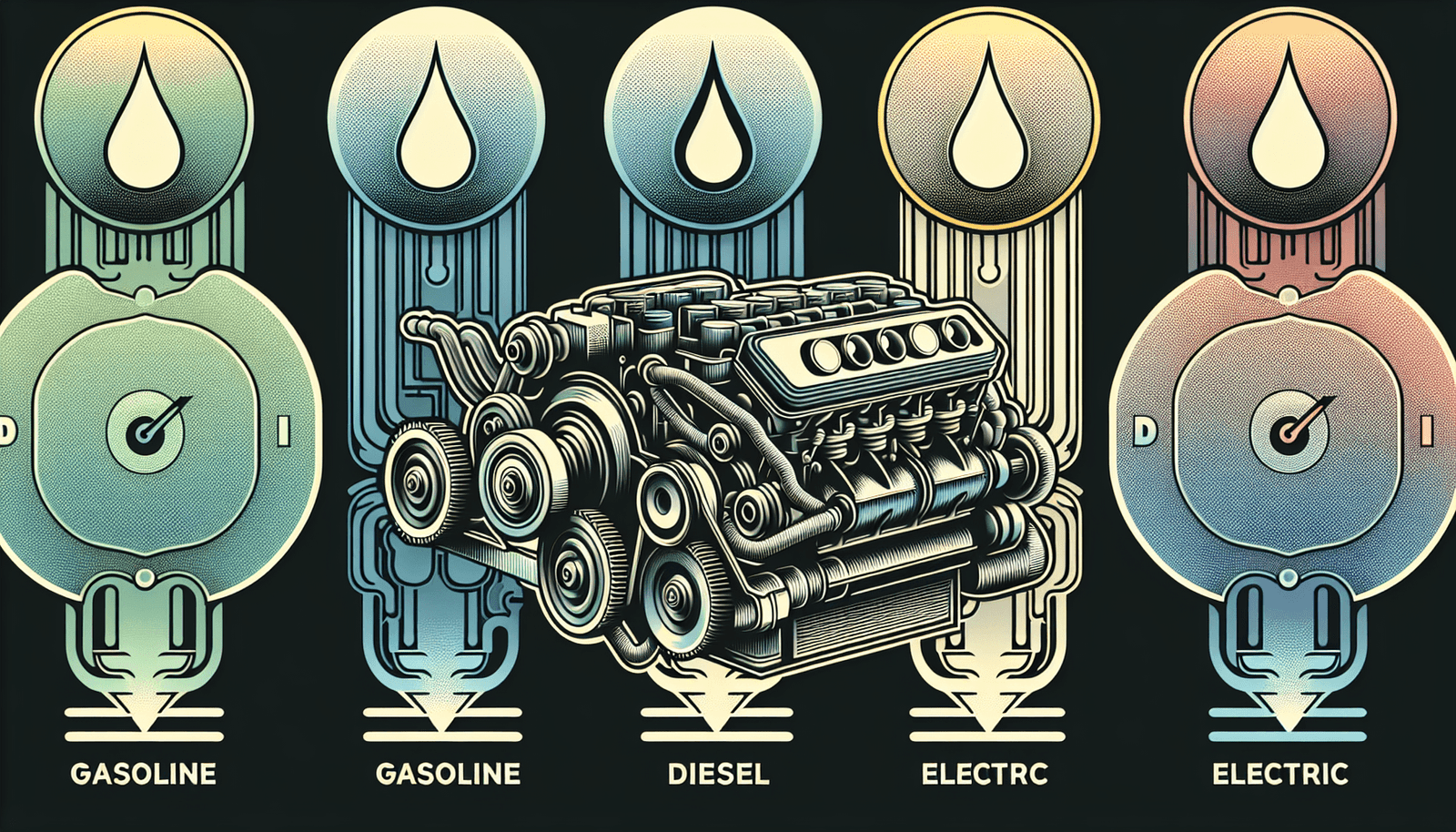Ever wondered how the type of fuel you use could drastically affect your boat engine’s performance? In this interesting read, you’re about to discover the dynamics between different fuel types and the resultant effects on your boat engine’s efficiency, lifespan and overall performance. You will not only learn about how different fuels such as diesel, gasoline, or ethanol fuel can impact your boating experience, but also unravel tips on how to choose the right kind of fuel for your watercraft. Ignite your curiosity and brace yourself for a journey into the world of boat engines and their intriguing relationship with fuel types.

Understanding Boat Engines
When it comes to boating, understanding the engine that powers your vessel is just as important as knowing how to steer and navigate. Not only does it make you a more informed boat owner, but it also allows you to troubleshoot potential problems and conduct routine maintenance checks more effectively.
Basics of boat engines
At its most basic, a boat engine works on the same principle as the engine of your car. It’s an internal combustion engine that converts fuel into mechanical power, which then propels your boat forward or backwards. However, the engine is more than just a power converter; it’s essentially a system of parts working together.
Components of a boat engine
The major components of a boat engine include the engine block (which houses the cylinders), pistons, a crankshaft, connecting rods, and valves. In addition to these, it also consists of several other parts such as the camshaft, timing system, fuel injection system, air intake system, and the exhaust system.
Functioning of a boat engine
For the engine to function, fuel (be it gasoline, diesel or any other type) is mixed with air in the cylinders and ignited by the spark plugs. This combustion process creates a force that pushes down the pistons, causing the crankshaft to turn, ultimately creating the mechanical power needed to turn the propeller and move the boat.
Types of Boat Engines
The engine type determines not only the operation and maintenance of your boat but also impacts its performance and efficiency.
Outboard Engines
These are self-contained units that include engine, steering, propulsion, and exhaust system, mounted outside the hull of the boat. They are commonly used for smaller boats due to their power and compactness.
Inboard Engines
As the name suggests, inboard engines are located inside the boat’s hull. Unlike outboard engines, they require a separate steering system and propellers. Inboard engines are more suitable for larger boats and provide more stability.
Sterndrive Engines
Also known as inboard/outboard (I/O) engines, sterndrives are a hybrid between the outboard and inboard engines. They are located inside the boat like an inboard engine, but they drive a propeller system that’s similar to an outboard engine’s.
Jet propulsion Engines
These engines work differently from the others. Instead of using a propeller, they suck in the water from beneath the boat and eject it out at high speed, thereby propelling the boat forward.
How Fuel Powers Boat Engines
Now that we’ve covered the basics of boat engines, let’s take a closer look at how fuel powers these engines in more detail.
Introduction to fuel as a power source
Just like your car or motorcycle, boats need fuel to operate. Fuel essentially serves as a source of energy for the internal combustion engine, powering the movement of your boat.
The process of combustion
When fuel and air mix together in the cylinders, they produce a highly combustible mixture. A spark from the spark plugs ignites this mixture, causing a mini-explosion. This explosion pushes the pistons, which subsequently turn the crankshaft and propel the boat.
The role of fuel in engine performance
The quality and type of fuel you use play a crucial role in your engine’s performance. Not only does it affect acceleration and speed, but it also influences fuel efficiency and the overall lifespan of the engine.
Types of Fuel for Boat Engines
There are several types of fuel that you can use for your boat engine. The choice largely depends on the kind of engine your boat has and your specific needs and preferences.
Gasoline
Gasoline is one of the most commonly used fuels in recreational boating. It’s readily available and often affordable, making it a popular choice for many boaters.
Diesel
Diesel engines are known for their durability and fuel efficiency, making diesel another popular choice, especially for larger boats that require more power.
Propane
While not as common as gasoline or diesel, propane is a viable option for boat engines. It’s a clean-burning fuel which emits fewer harmful emissions compared to other fuel types.
Electricity
Electric power is a green alternative to conventional fuels. It’s quiet, efficient, and environmentally friendly as it does not release any emissions.
Biofuels
These renewable fuels are derived from plants or algae. They are a great eco-friendly alternative to traditonal fuels, though availability can sometimes be a limiting factor.

Gasoline and Boat Engine Performance
Gasoline is a widely used fuel source, but how does it impact your boat’s performance?
Advantages of gasoline for boat engines
Gasoline is widely available, making it easy to refuel no matter where you boat. It’s also less expensive than other fuel types. Gasoline engines are typically lighter than diesel engines, which can sometimes result in faster speeds.
Disadvantages of gasoline for boat engines
Gasoline engines are typically less fuel efficient than their diesel counterparts. They also don’t last as long as diesel engines, which means they might require more maintenance and repairs.
Boat engine performance with gasoline
While boat performance varies depending on many factors, with high-quality gasoline and regular maintenance, you can expect a smooth and efficient ride most of the time.
Diesel and Boat Engine Performance
Diesel is a powerful, efficient fuel. But does that make it the right choice for your boat?
Advantages of diesel for boat engines
Diesel engines are more fuel efficient than gasoline engines which translates to longer cruises for the same amount of fuel. They’re also more durable and have longer life spans, which could mean less time and money spent on repairs.
Disadvantages of diesel for boat engines
The initial cost of diesel engines and fuel is higher. Diesel also exhibits lower performance at lower speeds, making them less ideal for recreational use.
Boat engine performance with diesel
When handled and maintained properly, a boat with a diesel engine can deliver excellent performance, although it might not be as quick off the mark compared to a gasoline-powered boat.

Propane and Boat Engine Performance
Propane is a less common choice, but it does offer some unique advantages.
Advantages of propane for boat engines
Propane is a clean-burning fuel, meaning it’s more eco-friendly than gasoline or diesel. It’s also cheaper than both gasoline and diesel.
Disadvantages of propane for boat engines
Unlike gasoline and diesel, propane isn’t as widely available. It might also provide less power compared to other fuel types.
Boat engine performance with propane
While a propane-powered boat might not deliver the same level of power as gasoline or diesel boats, it can offer a smooth and environmentally friendly ride.
Electricity and Boat Engine Performance
Electric-powered boats are gaining popularity due to their eco-friendly nature.
Advantages of electric power for boat engines
Electric boat engines are quieter. They require less maintenance compared to traditional engines. Also, their running cost can be significantly lower.
Disadvantages of electric power for boat engines
The initial cost of electric boats is high. Also, the limited battery range and long charging times can be impractical for long boating trips.
Boat engine performance with electric power
Electric engines provide smooth and quiet operation. While they can’t match the top speeds of gasoline or diesel engines, they offer a very serene boating experience.

Biofuels and Boat Engine Performance
Biofuels provide an renewable alternative that’s worth considering.
Advantages of biofuels for boat engines
Biofuels produce fewer emissions compared to traditional fuels. Some recent designs of boat engines are compatible with biofuels.
Disadvantages of biofuels for boat engines
Biofuels aren’t widely available and can be more expensive than traditional fuels. Also, not all engines are compatible with biofuels.
Boat engine performance with biofuels
Given that the boat engine is compatible, you can expect similar performance to gasoline or diesel when using biofuels.
Choosing the Right Fuel for Your Boat Engine
With the knowledge on how different fuels affect boat engine performance, you’re well-equipped to make an informed choice.
Comparing different fuels
Each type of fuel has its own set of advantages and disadvantages. While some may prioritize speed and power, others might value fuel efficiency or environmental impact. It’s important to compare and understand these factors.
Considerations for choosing fuel
Consider factors like the type of boat you have, how you plan to use it, your budget, the engine’s compatibility with certain fuels, and availability of fuels.
Impact of fuel choice on engine longevity and maintenance
Your choice of fuel can have a significant impact on the longevity and maintenance of your engine. Some fuels burn cleaner than others, leading to less build-up and wear on your engine.
The world of boat engines is vast and complex, but with enough understanding and consideration, you can make informed decisions that best suit your individual needs and circumstances.

